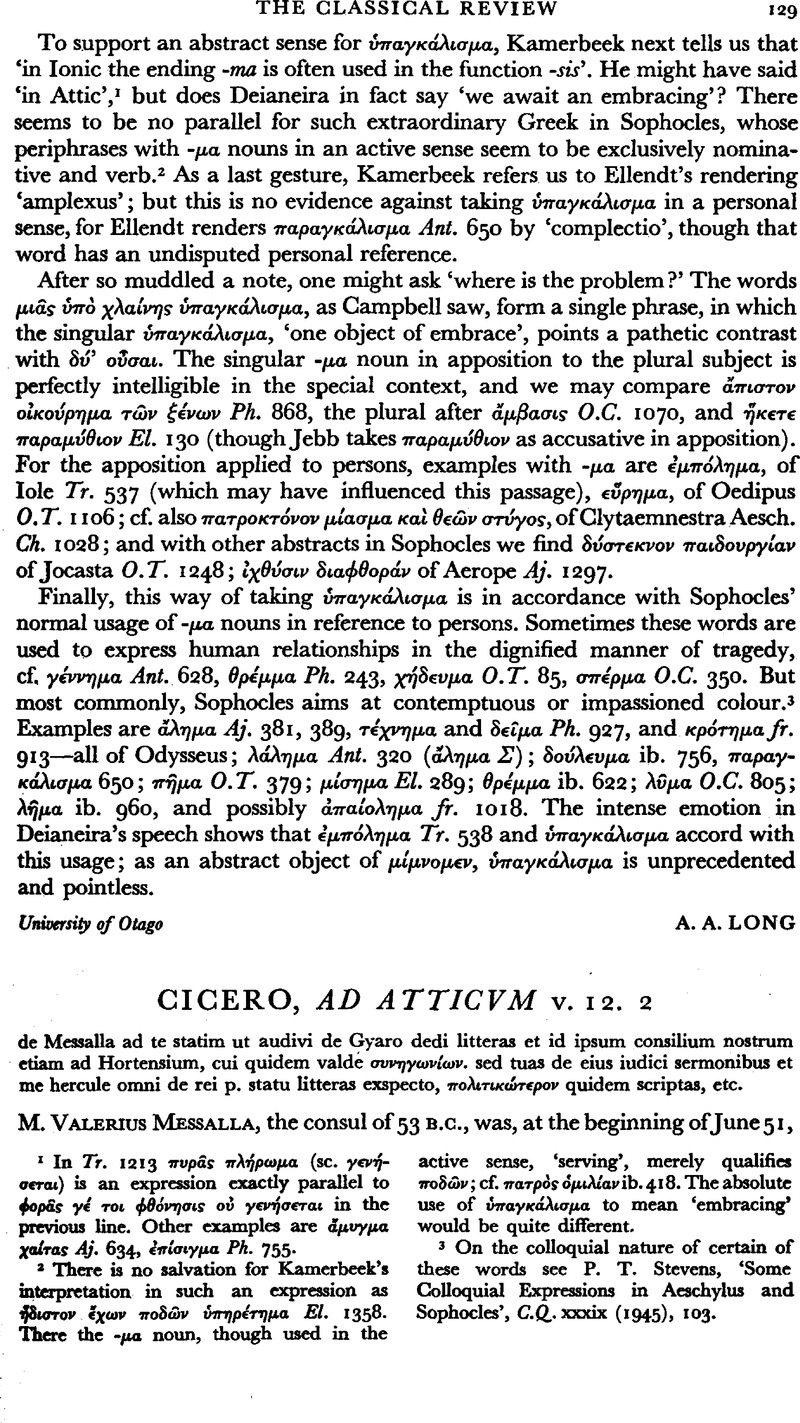Published online by Cambridge University Press: 27 February 2009

page 129 note 1 In Tr. 1213 mpas πυρ⋯ς πλ⋯ρωμα (sc. γεν⋯σεται) is an expression exactly parallel to φορ⋯ς γ⋯ τοι φθ⋯νησις οὐ γεν⋯σεται in the previous line. Other examples are ἄμυγμα χα⋯τας Aj. 634, ⋯π⋯σιγμα Ph. 755.
page 129 note 2 There is no salvation for Kamerbeek's interpretation in such an exprzession as ἤδιστον ἔχων ποδ⋯ν ὑπηρ⋯τηνα El. 1358. There the -μα noun, though used in the active sense, ‘serving’, merely qualifies ποδ⋯ν; cf. πατρ⋯ς ⋯μιλ⋯αν ib. 418. The absolute use of ὑπαγκ⋯λισμα to mean ‘embracing’ would be quite different.
page 129 note 3 On the colloquial nature of certain of these words see Stevens, P. T., ‘Some Colloquial Expressions in Aeschylus and Sophocles’, C.Q. xxxix (1945), 103.Google Scholar
page 130 note 1 The available editions are misleading in reading id without recording a variant.
page 130 note 2 In doing so they were anticipated by the scribe of codex Additus 6793.
page 130 note 3 One is reminded of the personification in Horace, Epp. i. 20: the book speaks to its readers (loqueris, 1.31), and is silent (taciturnus, 1. 12) when nobody reads it.
page 131 note 1 See Schiche, Th., Zu Ciceros Briefwechsel im Jahre 51 (Berlin, 1895), pp. 27–29. (Tyrrell–Purser's chronology is wrong.)Google Scholar